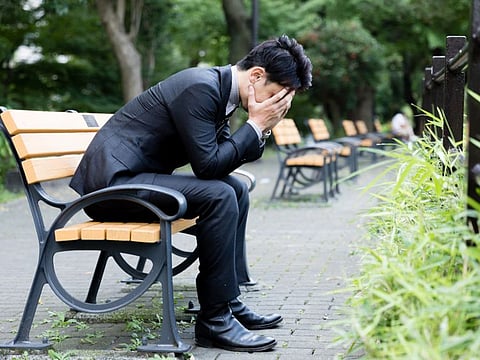Advice I never wanted to give
Science still has such a rudimentary understanding of why the mind works the way it does

Everybody wants to talk to me about suicide. It’s my own fault, I suppose. Or maybe it’s my little sister Lydia’s fault. But there’s no point in assigning blame.
Mostly I just miss her. Lydia took her own life in the summer of 2012. She had just turned 28. Those first few weeks after her death, I had no idea what to say, or how to say it. So I didn’t say anything. I just kept to myself and sobbed. But after a few weeks, this little voice inside kept nagging at me.
When are we going to talk about it? How are we going to deal with this? At the time of her death, I had been doing stand-up comedy for nearly eight years. I got on stage and talked about fast-food slogans and Montessori schools and birdwatching, and people seemed to enjoy it.
But I didn’t know how to joke about what happened to Lydia. And I didn’t want to. Something felt so cheap about that — unloading a hot 10 minutes on suicide. It felt beneath Lydia. And yet the desire to express my feelings about everything that happened was overwhelming me.
So I wrote about it. I wrote down everything that happened to me and I shared it online. Suddenly my inbox filled with gut-wrenching messages from people who had similarly awful experiences, or knew someone who had. Many of them asked for advice. I didn’t have anything to offer. Nor did I feel qualified.
It was as if a train had barrelled through my house, devastating my entire family in the process, and all anyone could think to do was ask me to tell them more about this train.
Eventually, I started responding. I was terrified I’d say the wrong thing. But I couldn’t just ignore them. So I began firing off a different answer based on how I was feeling at that moment. I focus on helping my family members; I avoid them for weeks on end.
I think about people who have had it far worse than me; I rage because no one’s ever had it this bad. I cry until I hurt; I don’t allow myself to cry. It was impossible to put it all together in real time. My older sister, Anna, and I often console ourselves that way. We tell ourselves that if Lydia hadn’t killed herself when she did, she would have done it some other time. Who knows how soon, but she would have done it just the same.
The way my mom saw it, modern science barely understands the human brain. All the studies, all the tests and pills and breakthroughs, it’s all worthless, she said. Medical science still has such a rudimentary understanding of why the mind works the way it does. In 100 years, psychiatrists would look at Lydia and say, “Oh, this girl is clearly suffering from X, Y and Z.” But, of course, science isn’t there yet. So all we’re left with is the clumsy knowledge that Lydia suffered from something. Something we were powerless to stop. It was mental illness — a real disease. That’s what got Lydia in the end. Not our ineptitude or lack of perception, the disease.
It helps to think this way, to view it as an inevitability that was neither Lydia’s fault nor our own. It’s the only way to free yourself from anguish. The only way to realise that despite all the suffering, even though she’s not there anymore, you are.
It’s been six years since Lydia died, and I’ve started talking about her on stage some, when it feels right. I don’t really have a joke about it. It’s more like a public service announcement that I make into the microphone, urging people to seek help, urging people to not feel ashamed of feeling powerless when it comes to their brains. You can see the audience tense up. I pepper in a few jokes here and there, to try to cut the tension. Which kind of works.
It’s not perfect, but it’s real, and it’s the best I seem to be able to do right now. If people are going to keep asking me about the train that barrelled through my house, I might as well learn to be honest about the damage.
—New York Times News Service
Adam Cayton-Holland is an American stand-up comedian.


